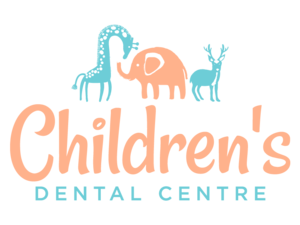Dental Neglect and What To Do
Following on from our initial blog post discussing child abuse and neglect, we want to take some time to talk about dental neglect and to offer some pathways/resources that would be of help to you should you have concerns about the welfare of a child.
Dental Neglect
In 2016-2017, neglect was statistically the most form of child abuse/maltreatment in Australia. This form of abuse can be recognised by a failure to thrive, poor physical state, delayed developmental milestones and behavioural and emotional problems.
Dental neglect is a complicated issue and can pose a significant conundrum for the dental team. The American Academy of Pediatric Dentistry defines dental neglect as ‘the wilful failure of parent or guardian to seek and follow through with treatment necessary to ensure a level of oral health essential for adequate function and freedom from pain and infection.’
Complicating the diagnosis of dental neglect consideration must be given to:
A lack of knowledge of healthy dietary and oral hygiene practices
Multi-factorial aetiology of dental caries and individual susceptibility
Differences in treatment provided by dental professionals
Cultural differences and barriers to care
Family stress and poverty preventing adequate oral care practices and inability to afford dental care
However, if the parents or guardian have been informed of any dental problems and avenues for appropriate care have been provided, dental neglect may be suspected if:
Attendance is irregular with numerous failures to attend,
Failure to complete planned treatment,
Frequent attendance with pain,
Failure to respond to a known dental problem,
Repeat general anaesthesia’s for dental extractions
Is There A Legal Obligation (as well as ethical)?
YES! The dental team has ethical and moral responsibilities to report suspected cases of CAAN. There is also a legal obligation in certain states, with mandatory reporting by dentists required in the ACT, NSW, NT, SA and Tasmania. Queensland and WA are not mandated to report CAAN, whilst in Victoria, only cases of sexual abuse must be reported by any adult.
Core points for a workplace policy include:
Induction of all staff regarding the importance of identifying and reporting suspicions of CAAN,
Identification of senior staff to consult when concerned,
Placement of an adapted version of the flowchart for QLD and VIC in all surgeries and reception areas,
Annual training and education,
Annual auditing of the policy and contact details of authorities by a senior staff member,
Mandatory debriefing of involved staff if a referral to authorities has been made,
Available free oral hygiene products for children suspected of dental neglect due to limited family finances,
Ensure all staff are practicing appropriate record keeping as per the Dental Board of Australia guidelines.
If you would like an example flow chart for what action to take when you suspect a case of child abuse and neglect, please subscribe below. We have completed them for Victoria and Queensland
All The Best
Sarah, Leanne and Tim
REFERENCES
1. Cairns AM, Welbury RR. The Responsibilities of the Dental Team in Child Protection. 2005 [cited 1st July 2020]; Available from: https://www.nature.com/articles/vital340
2. Harris J, Sidebotham P, Welbury R, Townsend R, Green M, Goodwin J, et al. Child protection and the dental team: An Introduction to Safeguarding Children in Dental Practice. Department of Health. England: Committee of Postgraduate Dental Deans and Directors; 2009.
3. National Institute for Health and Care Excellence. Child matreatment: when to suspect matreatmetn in under 18s. Great Britian. 2009 [cited 2018 29 May]; Available from: nice.org.uk/guidance/cg89
4. Welbury R. Dental neglect, child maltreatment, and the role of the dental profession. Contemp Clin Dent 2016;7(3):285-6.
5. American Academy of Pediatric Dentistry. Definition of Dental Neglect. 2016.
